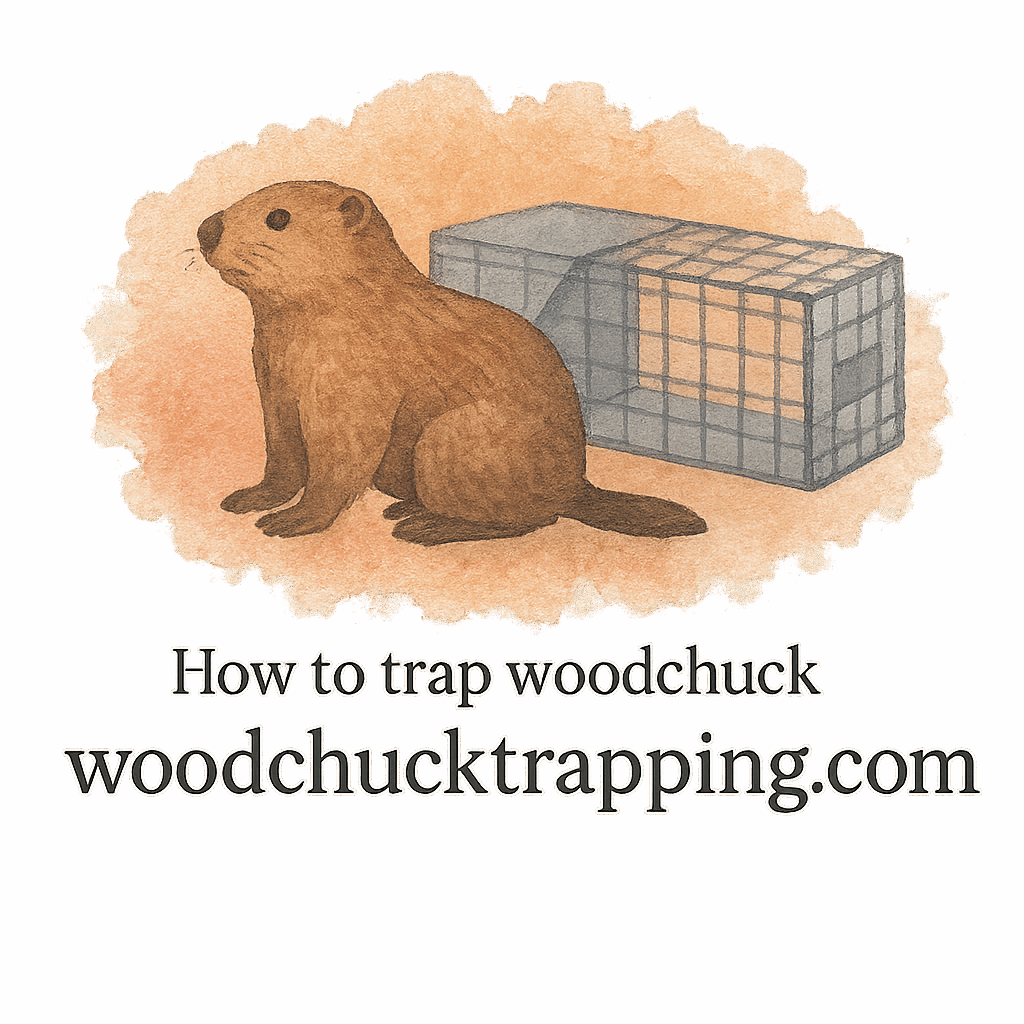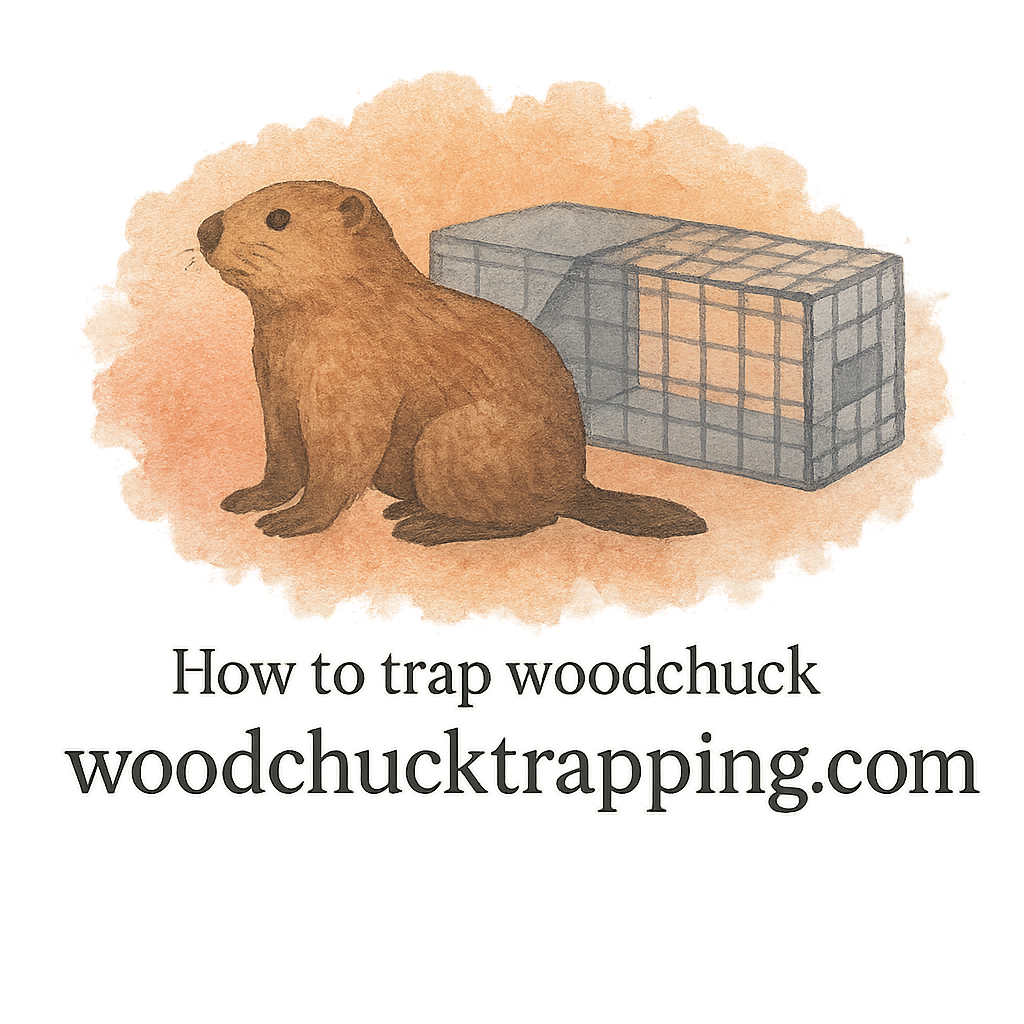Introduction
So, you’ve spotted telltale mounds of dirt, chewed-up plants, or gaping holes in your small backyard? That sneaky visitor is probably a woodchuck, also known as a groundhog. If your space is limited, you might be wondering: How do I trap a woodchuck without cluttering my entire yard? Don’t worry—I’ve got you covered.
In this guide, we’re diving into six of the best compact woodchuck traps for small yards that deliver big results without hogging up your garden. Let’s help you reclaim your yard, one humane trap at a time.
Why Compact Traps Are Ideal for Small Yards
Space-Saving Without Sacrificing Effectiveness
Compact traps are designed to do more with less. They fit easily into tight corners, near woodchuck burrows, and even in gardens where space is a premium.
Ease of Setup and Handling
Smaller traps are easier to carry, set, and monitor. If you’re not into the idea of wrestling a bulky cage in your tiny yard, compact models are the way to go.
Key Features to Look for in a Compact Woodchuck Trap
Trap Size and Dimensions
Aim for traps that are at least 24-30 inches long but no wider than 10 inches. This ensures they’re big enough for a woodchuck but small enough to tuck near a fence or shed.
Humane Mechanisms
Look for traps with humane catch-and-release doors or smooth edges to prevent injury. Remember, we’re solving a problem, not harming wildlife.
Material Durability
Go for rust-resistant, galvanized steel—especially if you’re dealing with weather exposure.
Portability and Weight
Lighter traps mean less back strain, especially if you’re frequently relocating them to different signs of infestation in the yard.
Top 6 Compact Woodchuck Traps for Small Yards
1. Havahart 1083 Live Animal Trap
Best for Humane Catch-and-Release
This trap is a fan favorite among homeowners dealing with small yard infestations. At just 24 inches, it’s ideal for tighter spaces. The spring-loaded door and sensitive trigger plate make it highly efficient.
Why it works:
- Humane design
- Easy to set up
- Durable build
Internal tip: Check out our full equipment reviews section for more insights on Havahart models.
2. Duke Standard Small Cage Trap
Budget-Friendly and Effective
Need something that gets the job done without denting your wallet? Duke traps are simple, reliable, and compact. At about 26 inches, it’s perfect for minimal-space setups.
Bonus: Compatible with various trap scent options.
3. Rugged Ranch Squirrelinator Trap
Great for Multiple Captures in Tight Spaces
Okay, it says “squirrel,” but it’s surprisingly effective for juvenile woodchucks. Its mesh design allows multiple entries, making it ideal when you’re dealing with a family of squatters.
Check the trapping techniques page to see how this type of trap can be used creatively.

4. Tomahawk Original Series Model 104
Built Tough with Compact Engineering
Tomahawk’s solid construction and compact size make this model a backyard hero. The 30-inch cage fits snugly in small yards while still giving the woodchuck enough space to enter comfortably.
Great for tools and trapping essentials seekers.
5. OxGord Live Animal Cage Trap
Compact, Lightweight, and Reliable
This model scores high on portability. It’s foldable, too—so once your mission’s complete, you can easily stow it away in your garage.
Pro tip: Use scented baiting and luring techniques to increase catch rates.
6. SmartGuarden Compact Rodent Trap
Smart Design for Smaller Spaces
Don’t let the name fool you—this trap is a clever fit for small-size woodchucks. It blends well into landscaping and offers a quick-set mechanism perfect for busy homeowners.
Great companion for trapping in a small yard situations.
Where to Place Traps in a Small Yard
Identifying Active Burrows and Paths
Look for fresh dirt mounds, chewed vegetation, and direct tracks. These are telltale signs of active woodchuck activity.
Use signs as your map.
Camouflaging the Trap Effectively
Blend traps into their surroundings with leaves, branches, or even a bit of dirt. Just be sure you don’t block the entrance.
Best Baiting and Luring Strategies for Small Spaces
Choosing the Right Scent Bait
Fresh vegetables like lettuce, apples, or carrots work wonders. For extra punch, try commercial scent bait designed for woodchucks.
Proper Bait Placement Inside Compact Traps
Place bait at the back of the trap so the woodchuck has to step on the trigger. For tight spaces, make sure the bait doesn’t obstruct the door.
Need help? Visit our guide on baiting and luring for expert advice.
Safety Tips When Trapping in Small Areas
Wearing Gloves and Protective Gear
Always wear gloves when handling traps. Not only for hygiene—but to avoid transferring human scent.
Monitoring Traps Frequently
Compact traps fill fast. Check at least twice a day to avoid stressing the animal and ensure humane handling.
Read more on laws and safety.
Legal and Ethical Considerations
Complying with Local Trapping Laws
Check your state’s wildlife department for regulations on woodchuck trapping. Some areas require permits—even for catch-and-release.
Ensuring Humane Handling and Release
Once caught, release the animal far from human residences and preferably in a suitable wild area. Learn how to handle a trapped animal safely.
Final Thoughts
Dealing with woodchucks in a small yard doesn’t mean compromising on efficiency. These six compact traps are your best allies in keeping your space woodchuck-free—ethically and effectively. Remember to monitor frequently, bait smartly, and always follow local laws. Your small yard can be peaceful again—with a little strategy and the right tools.
Don’t forget to explore other helpful guides on woodchucktrapping.com for more tips and product reviews!
FAQs
1. What’s the best bait to use in a compact woodchuck trap?
Fresh fruits like apples and veggies like carrots work well. For stronger results, use scent lures specifically made for groundhogs.
2. Can I use these traps indoors or in a shed?
It’s not recommended. Traps work best outdoors where woodchucks are active—especially near burrows.
3. How do I know if my trap is too small for a woodchuck?
If it’s under 24 inches long, it might be too tight. Stick to traps at least 24–30 inches long.
4. Should I use more than one trap in a small yard?
Yes—placing 2–3 compact traps in different corners increases success chances, especially if you’re dealing with multiple woodchucks.
5. What if I accidentally trap another animal?
Release it gently and safely. Always wear gloves and check your traps frequently to avoid this.
6. Are compact traps reusable?
Absolutely! Most are built for multiple uses, just be sure to clean them between catches.
7. Is trapping the only solution?
Nope! Check out our section on prevention and damage control to learn about long-term solutions.


